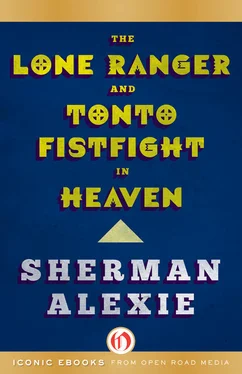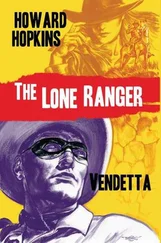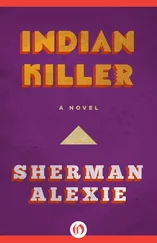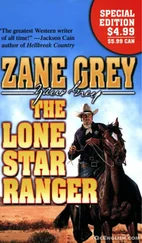Very respectfully, your obedient servant,
G. WRIGHT, Colonel 9th Infantry, Commanding.
“Somehow I was lucky enough to be spared while hundreds of my brothers and sisters fell together. It was a nightmare to witness. They were rounded into a corral and then lassoed, one by one, and dragged out to be shot in the head. This lasted for hours, and all that dark night mothers cried for their dead children. The next day, the survivors were rounded into a single mass and slaughtered by continuous rifle fire.”
Thomas opened his eyes and found that most of the Indians in the courtroom wept and wanted to admit defeat. He then closed his eyes and continued the story:
“But I was not going to submit without a struggle. I would continue the war. At first I was passive, let one man saddle me and ride for a while. He laughed at the illusion of my weakness. But I suddenly rose up and bucked him off and broke his arm. Another man tried to ride me, but I threw him and so many others, until I was lathered with sweat and blood from their spurs and rifle butts. It was glorious. Finally they gave up, quit, and led me to the back of the train. They could not break me. Some may have wanted to kill me for my arrogance, but others respected my anger, my refusal to admit defeat. I lived that day, even escaped Colonel Wright, and galloped into other histories.”
Thomas opened his eyes and saw that the Indians in the courtroom sat up straight, combed their braids gracefully, smiled with Indian abandon.
“Mr. Builds-the-Fire,” the judge asked. “Is that the extent of your testimony?”
“Your Honor, if I may continue, there is much more I need to say. There are so many more stories to tell.”
The judge looked at Thomas Builds-the-Fire for an instant, decided to let him continue. Thomas closed his eyes, and a new story was raised from the ash of older stories:
“My name was Qualchan and I had been fighting for our people, for our land. It was horrendous, hiding in the dirt at the very mouth of the Spokane River where my fellow warrior, Moses, found me after he escaped from Colonel Wright’s camp. Qualchan , he said to me. You must stay away from Wright’s camp. He means to hang you . But Wright had taken my father hostage and threatened to hang him if I did not come in. Wright promised he would treat me fairly. I believed him and went to the colonel’s camp and was immediately placed in chains. It was then I saw the hangman’s noose and made the fight to escape. My wife also fought beside me with a knife and wounded many soldiers before she was subdued. After I was beaten down, they dragged me to the noose and I was hanged with six other Indians, including Epseal, who had never raised a hand in anger to any white or Indian.”
Thomas opened his eyes and swallowed air hard. He could barely breathe and the courtroom grew distant and vague.
“Mr. Builds-the-Fire,” the judge asked and brought Thomas back to attention. “What point are you trying to make with this story?”
“Well,” Thomas said. “The City of Spokane is now building a golf course named after me, Qualchan, located in that valley where I was hanged.”
The courtroom burst into motion and emotion. The judge hammered his gavel against his bench. The bailiff had to restrain Eve Ford, who had made a sudden leap of faith across the room toward Thomas.
“Thomas,” she yelled. “We’re all listening.”
The bailiff had his hands full as Eve slugged him twice and then pushed him to the ground. Eve stomped on the bailiff’s big belly until two tribal policemen tackled her, handcuffed her, and led her away.
“Thomas,” she yelled. “We hear you.”
The judge was red-faced with anger; he almost looked Indian. He pounded his gavel until it broke.
“Order in the court,” he shouted. “Order in the fucking court.”
The tribal policemen grew in number. Many were Indians that the others had never seen before. The policemen swelled in size and forced the others out of the courtroom. After the court was cleared and order restored, the judge pulled his replacement gavel from beneath his robe and continued the trial.
“Now,” the judge said. “We can go about the administration of justice.”
“Is that real justice or the idea of justice?” Thomas asked him, and the judge flew back into anger.
“Defense testimony is over,” he said. “Mr. Builds-the-Fire, you will now be cross-examined.”
Thomas watched the prosecuting attorney approach the witness stand.
“Mr. Builds-the-Fire,” he said. “Where were you on May 16, 1858?”
“I was in the vicinity of Rosalia, Washington, along with 799 other warriors, ready to battle with Colonel Steptoe and his soldiers.”
“And could you explain exactly what happened there that day?”
Thomas closed his eyes and told this story:
“My name was Wild Coyote and I was just sixteen years old and was frightened because this was to be my first battle. But we were confident because Steptoe’s soldiers were so small and weak. They tried to negotiate a peace, but our war chiefs would not settle for anything short of blood. You must understand these were days of violence and continual lies from the white man. Steptoe said he wanted peace between whites and Indians, but he had cannons and had lied before, so we refused to believe him this time. Instead, we attacked at dawn and killed many of their soldiers and lost only a few warriors. The soldiers made a stand on a hilltop and we surrounded them, amazed at their tears and cries. But you must understand they were also very brave. The soldiers fought well, but there were too many Indians for them on that day. Night fell and we retreated a little as we always do during dark. Somehow the surviving soldiers escaped during the night, and many of us were happy for them. They had fought so well that they deserved to live another day.”
Thomas opened his eyes and found the prosecuting attorney’s long nose just inches from his own.
“Mr. Builds-the-Fire, how many soldiers did you kill that day?”
Thomas closed his eyes and told another story:
“I killed one soldier right out with an arrow to the chest. He fell off his horse and didn’t move again. I shot another soldier and he fell off his horse, too, and I ran over to him to take his scalp but he pulled his revolver and shot me through the shoulder. I still have the scar. It hurt so much that I left the soldier and went away to die. I really thought I was going to die, and I suppose the soldier probably died later. So I went and lay down in this tall grass and watched the sky. It was beautiful and I was ready to die. It had been a good fight. I lay there for part of the day and most of the night until one of my friends picked me up and said the soldiers had escaped. My friend tied himself to me and we rode away with the others. That is what happened.”
Thomas opened his eyes and faced the prosecuting attorney.
“Mr. Builds-the-Fire, you do admit, willingly, that you murdered two soldiers in cold blood and with premeditation?”
“Yes, I killed those soldiers, but they were good men. I did it with sad heart and hand. There was no way I could ever smile or laugh again. I’m not sorry we had to fight, but I am sorry those men had to die.”
“Mr. Builds-the-Fire, please answer the question. Did you or did you not murder those two soldiers in cold blood and with premeditation?”
“I did.”
Article from the Spokesman-Review, October 7, 19 —.
Builds-the-Fire to Smolder in Prison
WELLPINIT, WASHINGTON — Thomas Builds-the-Fire, the self-proclaimed visionary of the Spokane Tribe, was sentenced today to two concurrent life terms in the Walla Walla State Penitentiary. His many supporters battled with police for over eight hours following the verdict.
Читать дальше












